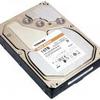Final Words & Conclusion
Conclusion
The era of the dinosaurs is fading away, as HDDs are slowly phasing out of the industry. However, there are certain workloads and situations where an HDD can make a difference. My home and office NASes, of course, are loaded with them but in an era where the SSD has become something standard, it is simply getting more unusual for a company to present them. Especially the new QLC NAND when it reaches viable volumes, will become a true issue for that traditional mechanical operating HDD.
Obviously, for NAS bigger is better, the price needs to be really good and warranty, lot's of warranty. These three factors a company needs to offer to be able to battle the SSD, as really, you're not going to use an HDD as OS boot device considering an SSD are a dozen, maybe even hundreds of times faster with small files. Sustained and linear performance however still is good with an HDD, in that 250MB/sec range you just cannot complain. This HDD quickly ran out of juice though with small files. Then again, for NAS really that is not the biggest problem. The SSDs are still relatively expensive but have been dropping in price fast. You can purchase them for 10 to 20 cents per GB running upwards top 80 cents per GB for the fastest NVMe units. The HDD tested should be cheap, the tested product costs roughly 3 cents per GB. So while for massive storage requirements, an HDD can make a lot of sense that price needs to be right, and yeah that seems to be the case and the one thing going for it. I have been saying this a long time now, if you're on a budget use an SSD for your OS and an HDD for the rest, it is a pretty good symbiosis. The 10 TB N300 ain't no slouch either for a 10TB HDD, while it cannot handle the high IO workloads an SSD can manage on small files for things like games, your music, and movies it's fast enough for what it is and needs to be (for most people). Copying big files over NAS is what it is good at. The NAS N300 is an HDD rated for 24x7 operation and gets a 180TB/yr workload rating. Toshiba offers a 3-year warranty on this unit.
Concluding
In no way is an HDD anno 2019 rather appealing anymore, but in a NAS unit it can make a lot of sense for backups and large file storage centralized in that small little home server of yours. Really the N300 hardly excels in anything as it shows almost 10 Watt power consumption when used, 7 Watts in idle. Read-write performance for an HDD is good as long as these are big files. The unit also runs a bit warm. What Toshiba does right is the pricing, at 3 cents per GB it is still 3x cheaper than the cheapest SSD will offer. So yes, in a desktop PC combined with an SSD this can make could make sense at 10 Cents per GB, or of course, house it inside what it was released, into a NAS. One advise I like to gove Toshiba though, the three-year warranty really should be 5 years to make these units more competitive towards NAND storage. The bottom line is that Toshiba proofs today that there is good reason for the HDD to be around if you're looking for massive storage at a far more affordable price per GB ratio. And for an HDD at 3 cents per GB that goes a long way, keep in mind that Toshiba also offers a volume size of 12 and 14TB.
- Sign up to receive a notification when we publish a new article
- Or go back to Guru3D's front page


